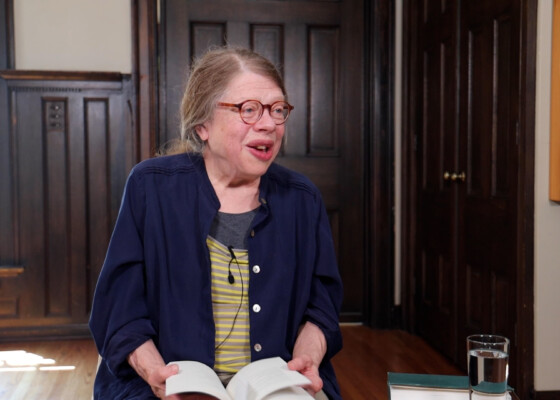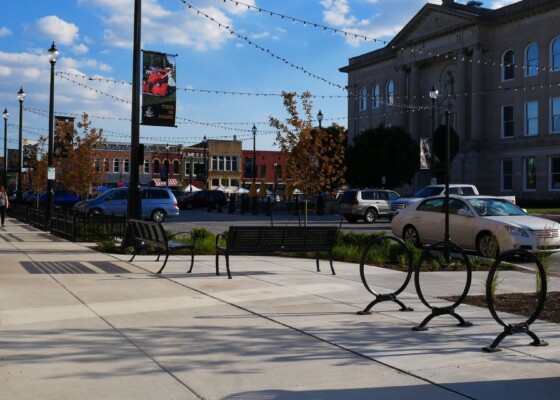Crossing Stones, Painting Words
October 26, 2011Young people caught in history’s often cruel and occasionally thrilling times form the core of this book by Indiana author Helen Frost. Crossing Stones eventually comes together to tell a…
Young people caught in history’s often cruel and occasionally thrilling times form the core of this book by Indiana author Helen Frost. Crossing Stones eventually comes together to tell a story but like a mosaic in which the pieces are little poems, each expressing the thoughts of one of the characters.
The four voices in the book belong to Muriel and Ollie Jorgensen and Emma and Frank Norman, each a brother and sister pair. They live on adjoining farms in Michigan, separated by Crabapple Creek.
The story begins in history class, which, says Muriel, “as far as I can tell, they might as well call war class.” A feminist in the making, Muriel questions the President, his Cabinet (an exclusively male group) and his intentions regarding her brother, the draft and America’s entry into World War I.
Emma, on the other hand, simply sees the “good solid stuff” her brother and their neighbor, Ollie, are made of. “When anything ‘must be made safe,’ Frank and Ollie always volunteer.”
Muriel is a questioner and a thinker in other ways, too. She is not sure that settling down on a farm with a family, husband (Frank?) and a quiet lifestyle are for her. “Maybe you won’t rock a cradle, Muriel. Some women seem to prefer to rock the boat,” says her mother. Muriel soon has an opportunity to travel to Washington, D.C., where her aunt Vera, a suffragette, is on a hunger strike.
Frost’s writing – her poetry – makes it easy to imagine that rural landscape in the long ago time of horse and buggy. The dilemmas facing the families could, however, come from any period of history. Should we be sending our sons to fight in a foreign war that we don’t really understand? Perhaps if women had the vote, thinks Muriel, things might be different.
The author adds a note at the end of the book to explain her method: “I’ve created a formal structure to give the sense of stepping from stone to stone across a flowing creek. I think of this kind of writing as painting with words, a process involving hands, eyes, ears, thought, and emotion, all simultaneously working together.” The result, however, does not override the human drama or the admiration we have for the young people so poignantly captured in the words on the page.
Having read Crossing Stones, I’m eager to meet Helen Frost on Saturday, Oct. 29, 2011, at the Indy Author Fair, sponsored by the Indianapolis Public Library. The event takes place at the Central Library. [information here]


